The music of Solomon Islands has received international attention since before the country became independent from the United Kingdom in 1978.

Deep Forest is a French music project that originally began as a duo consisting of Michel Sanchez and Éric Mouquet. They compose a style of world music, sometimes called ethnic electronica, mixing ethnic with electronic sounds and dance beats or chillout beats. Their sound has been described as an "ethno-introspective ambient world music".

"Sadeness (Part I)" is a song by German musical project Enigma, released in 1990 as the debut single from their first album, MCMXC a.D. (1990). It became an international hit, reaching number one in 14 countries. In the United States, the song peaked at number five on the Billboard Hot 100, and number one on both its Dance Club Songs and Dance Singles Sales charts. A sequel to the song, "Sadeness (Part II)" featuring Anggun, was released on Enigma's eighth studio album, The Fall of a Rebel Angel (2016).
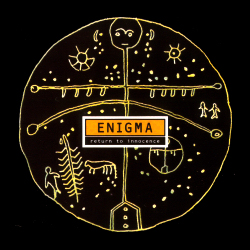
"Return to Innocence" is a song by German musical group Enigma, released on 4 January 1994 by Virgin as the lead single from the group's second album, The Cross of Changes (1993). It reached number one in over 10 countries, peaked at number three on the UK Singles Chart, and entered the top five in several other countries. "Return to Innocence" was the project's biggest hit in the United States, reaching number two on the Billboard Modern Rock Tracks chart and number four on the Billboard Hot 100. Julien Temple directed its accompanying music video, which received heavy rotation on European music channels.

"My Lovin' (You're Never Gonna Get It)" is a song by American pop/R&B group En Vogue, released in March 1992 as the lead single from their multi-platinum second album, Funky Divas (1992). The single reached number two on the US Billboard Hot 100, becoming their joint highest-peaking single on the chart alongside "Hold On" and "Don't Let Go (Love)", and it peaked atop the Billboard Hot R&B Singles chart for two weeks. Internationally, the song reached number four in the United Kingdom and peaked within the top 10 on the charts of Canada, Ireland, and the Netherlands. Its music video was directed by Matthew Rolston and was nominated in six categories at the MTV Video Music Award.

Deep Forest is the first studio album by the musical group Deep Forest, consisting of French duo Éric Mouquet and Michel Sanchez. The album mixes New Age electronics with UNESCO field recordings of music from the Democratic Republic of the Congo, the Solomon Islands, Burundi, Tibesti, and the Sahel. Deep Forest was nominated for the Grammy Award as Best World Music Album in 1994. For Sanchez and Mouquet, the most important purpose of the album was to express their own fascination with the Efe people, and open the world's ears to the exquisite sound of a quickly vanishing culture. As Mouquet noted, "It's not very often you can hear a Pygmy singing on the radio." However this purpose was not realised as no Efe, or indeed any Pygmy people featured on the album or any of its samples.

"Breathe Again" is a song by American R&B singer Toni Braxton. It was written by Kenneth "Babyface" Edmonds and produced by Edmonds, L.A. Reid, and Daryl Simmons for Braxton's self-titled debut album (1993). Its lyrics evokes a sense of nostalgia from a relationship that has run its course. The ballad was released as the album's second single on October 6, 1993, by LaFace and Arista Records.
Steven Feld is an American ethnomusicologist, anthropologist, and linguist, who worked for many years with the Kaluli (Bosavi) people of Papua New Guinea. He earned a MacArthur Fellowship in 1991.

World mix is a re-release version of the Deep Forest eponymous album, originally released in 1992. The record was released by Columbia Records on 13 April 1994.
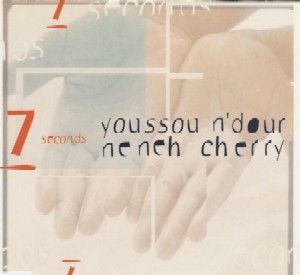
"7 Seconds" is a song composed by Senegalese and Swedish singer-songwriters Youssou N'Dour and Neneh Cherry with Cameron McVey and Jonathan Sharp. It was released in May 1994 by Columbia as a single performed by N'Dour and Cherry, and achieved success, reaching the number-one position in numerous countries; in France, it stayed at number one for 16 weeks, a record at the time. The song also won the MTV Europe Music Award in the category for Best Song of 1994. Its music video was directed by French director Stéphane Sednaoui. NME magazine ranked "7 Seconds" number 40 in their list of the 50 best songs of 1994.

"Sour Times" is a song by English trip hop group Portishead, from their debut album, Dummy (1994). It was written by all three members of the band and released as a single by Go! Beat Records in August 1994, accompanied by three bonus tracks: "It's a Fire", "Pedestal", and "Theme from To Kill a Dead Man". NME ranked it number 32 in their list of the 50 best songs of 1994. Slant Magazine placed it at number 77 in their ranking of "The 100 Best Singles of the 1990s" in 2011.

"The Love I Lost" is a song by American R&B group Harold Melvin & the Blue Notes. Group member Teddy Pendergrass sang lead vocals. Originally written as a ballad by Philly soul songwriters Kenny Gamble and Leon Huff, the song was transformed into a funk song and features drummer Earl Young. It was released from the Black & Blue album in late 1973 and sold more than a million copies. In the 21st century, the track has been the subject of extended re-edits by notable remixers Tom Moulton, Theo Parrish, and Dimitri From Paris.

"Melody of Love (Wanna Be Loved)" is a song by American singer and songwriter Donna Summer. It was released on October 31, 1994 by Mercury Records and Casablanca Records as a new track and the lead single for her 1994 hits compilation album, Endless Summer: Donna Summer's Greatest Hits. The song was written by Summer, David Cole, Robert Clivillés and Joe Carrano, and produced by Summer and Welcome Productions. It just missed the top 20 in the United Kingdom and was a top-40 hit in Belgium. The song was formed with several remixes and was her tenth number one hit on the US Billboard Hot Dance Club Songs chart. In Australia, the single peaked at number 79 in December 1994. It was awarded the ASCAP Dance Song of the Year prize in 1996.

"Shoop" is the lead single released from American hip hop group Salt-N-Pepa's fourth studio album, Very Necessary (1993). The song was produced by group members Sandra "Pepa" Denton and Cheryl "Salt" James with Mark Sparks. It features an uncredited verse by rapper Otwane "Big Twan Lov-Her" Roberts. Released in September 1993 by Next Plateau, the song became one of the group's more successful singles, reaching number four on the US Billboard Hot 100 and topping the Hot Rap Singles chart at number one. Two months after its release, "Shoop" was certified gold by the RIAA; it went on to sell 1.2 million copies. Its accompanying music video was directed by Scott Kalvert. The success of both this single and the follow-up single "Whatta Man" propelled Very Necessary to sell over 5 million copies in the US, becoming the group's best-selling album.
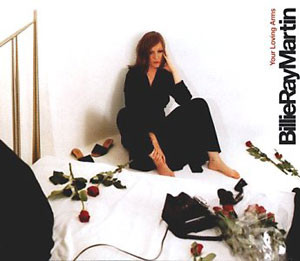
"Your Loving Arms" is a song by German singer Billie Ray Martin, the former lead singer of Electribe 101. It was released by Magnet and Sire in October 1994 as the first single from the singer's debut solo album, Deadline for My Memories (1995). Written by Martin and David Harrow, it is known to be one of her most notable singles. It was produced by English electronic dance group the Grid and was originally released on October 31. The track found greater chart success in 1995, when it peaked at number one in Italy and on the US Billboard Hot Dance Club Songs chart, and number six on the UK Singles Chart. On the Eurochart Hot 100, it reached number 21. There were made two different music videos for the song. Mixmag featured "Your Loving Arms" in its "100 Greatest Dance Singles of All Time" list in 1996.
Hugo Zemp is a Swiss-French ethnomusicologist. A prolific recorder of ethnic music and a writer on the subject, he has also shot a number of films about music of various regions, including 1988 film Voix de tête, voix de poitrine and 2002 film An African Brass Band filmed by him in Ivory Coast in 2002. His wide musical expertise includes music notably in Africa, Oceania and Switzerland. He also had particular interest in yodeling and lullabies. His recordings of lullabies from Solomon Islands were later released by UNESCO as part of their Musical Sources collection. One famous lullaby he recorded, a traditional Baegu lullaby from the Solomon Islands called "Rorogwela" was sung by Afunakwa, a Northern Malaita old woman. The recording was later used, apparently without permission, in Deep Forest's song "Sweet Lullaby".
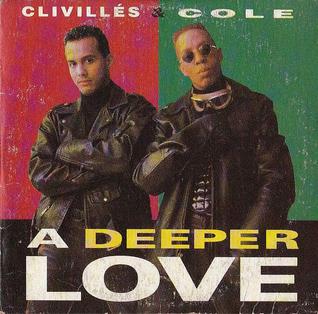
"A Deeper Love" is a song written by American producers Robert Clivillés and David Cole, and performed by them as Clivillés & Cole featuring vocals by Deborah Cooper and Paul Pesco. The song was the duo's fifth number-one on the US Billboard Hot Dance Club Play chart. On other US charts, "A Deeper Love" peaked at number 83 on the soul singles chart and number 44 on the pop chart. Overseas, especially in Europe the single charted higher, going to number 15 in the UK and number eight on the Dutch Top 40.

"Cotton Eye Joe" is a song by Swedish Eurodance group Rednex, released in August 1994 as the first single from their debut studio album, Sex & Violins (1995). Based on the traditional American folk song "Cotton-Eyed Joe", it combines the group's style with traditional American instruments such as banjos and fiddles. The vocal verses are performed by Annika Ljungberg, while the "Cotton Eye Joe" chorus is sung by Göran Danielsson, who never appears in the music video for the song, directed by Stefan Berg. It was a number one hit in at least eleven countries, and reached number 25 on the Billboard Hot 100 and number 23 on the Cash Box Top 100 in the US. In 2002, "Cotton Eye Joe" was remixed in a new dance version, and was released on Rednex's first greatest hits album, The Best of the West (2002).
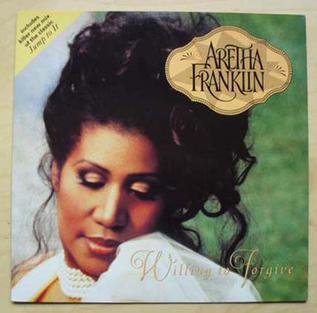
"Willing to Forgive" is a song by American singer-songwriter Aretha Franklin from her seventh compilation album, Greatest Hits: 1980–1994 (1994). It was released as the album's second single in May 1994 by Arista Records. Written and produced by Babyface and Daryl Simmons, it became a hit in the, reaching number 26 on the Billboard Hot 100 and number five on the Billboard Hot R&B/Hip-Hop Songs chart. It also charted in the UK, reaching number 17. On the Eurochart Hot 100, "Willing to Forgive" peaked at number 49 in July 1994.
"She Don't Let Nobody (But Me)" is a song by American singer-songwriter Curtis Mayfield, included on his 1982 album Love Is the Place. It was released in 1981 as the first single from the album and reached No. 15 on the US Billboard Hot Soul Singles chart.
















